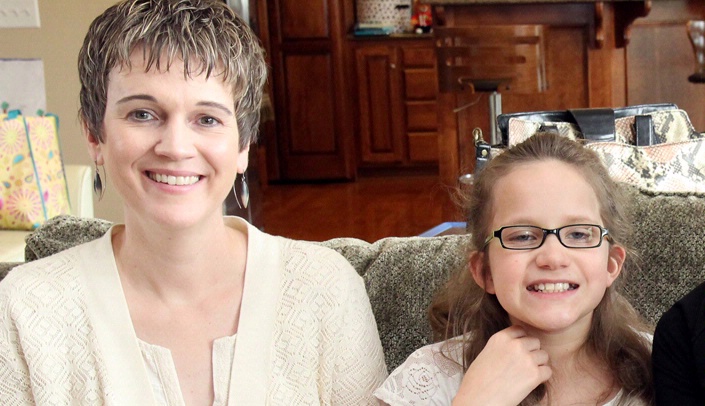Tammy Kielian, Ph.D., professor of pathology and microbiology, took on the search for a treatment for Juvenile Batten disease (JBD) when her niece was diagnosed with the rare, fatal disorder. This month, UNeMed, the technology transfer and commercialization office for UNMC, entered into a licensing agreement with PlasmaTech Biopharmaceuticals to further develop a gene therapy approach discovered in her laboratory that holds promise as a potential therapeutic.
It’s a potential breakthrough development in the fight against a devastating childhood disease that as yet has no treatment or cure.
Dr. Kielian said a final product might still be years away, but her lab is working on a solution that does more than just slow disease progression.
“Ours is a demonstration of a treatment that would correct the genetic defect,” she said.
Also known as juvenile neuronal ceroid lipofuscinosis, JBD is an inherited, autosomal recessive, neurodegenerative disorder that results in lysosomal storage problems — basically, due to a gene mutation, protein and lipids build up inside brain cells, resulting in neuron death in the central nervous system. Other cells outside the brain also accumulate this material, leading to other complications typical of the disorder, including heart disease.
The first symptom is vision loss, followed by seizures, cognitive loss and motor decline. Finally, premature death.
Dr. Kielian has seen first-hand how Juvenile Batten disease can affect a family.
“It changes everything,” she said.
But PlasmaTech, a biopharmaceutical company focused on gene therapy and cell therapy products for severe and life-threatening rare diseases, is optimistic the therapy developed in Dr. Kielian’s laboratory has the potential to change that. The goal is to work with Dr. Kielian to advance her research into clinical trials, PlasmaTech officials said.
Steven Hinrichs, M.D., chair of pathology and microbiology, said the research turned on a key finding: “Her laboratory demonstrated that expression of the therapeutic gene in only a few cells was able to benefit neighboring cells.
That discovery completely changes the outlook for gene therapy in Juvenile Batten disease and makes a true therapy possible for this terrible disorder.”
The therapy has demonstrated significant and promising results in animal models of the disease.
Dr. Kielian is optimistic that with continued funding and development, the potential therapy could be fast-tracked.
UNMC’s Munroe-Meyer Institute, which treats children with rare genetic diseases, will be involved in the planned future clinical trials, said MMI pediatric geneticist William Rizzo, M.D.
Dr. Kielian credits her laboratory staff as essential to recent success.

Congratulations!!
How Fantastic!!
Congratulations, Tammy. Your creativity, passion and persistence have made a difference. Best wishes for continued success. Hal Maurer
Well done, perhaps your delivery system could be enhanced by using a viral vector system that readily infects CNS cells.